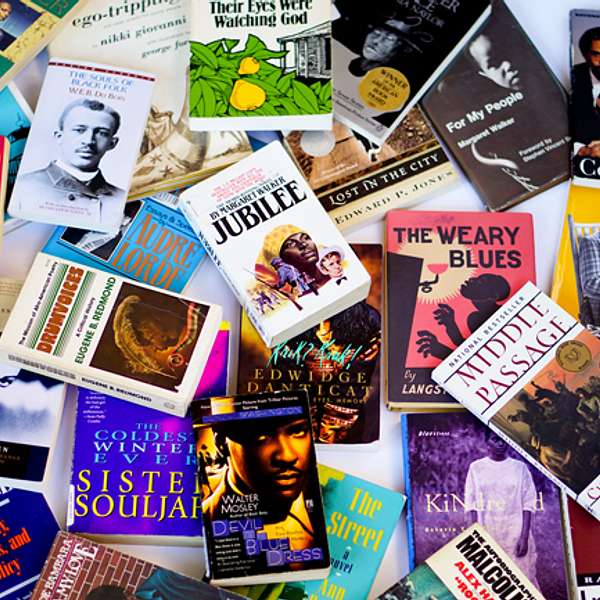
Remarkable Receptions
A podcast about popular and critical responses to African American novels, artistic productions, and more.
Remarkable Receptions
1970s Black Superheroes -- ep. by Stephyn Phillips
A short take on Black superheroes and their appearances in the 1970s.
Written by Stephyn Phillips.
Read by Kassandra Timm.
The 1970s saw a needed shift in characters of color in the pages of comic books, as creators started to tell stories that were more realistic and diversified.
You’re listening to Remarkable Receptions—a podcast about popular and critical responses to African American novels.
The first mainstream African-American superhero was Falcon, who debuted for Marvel in the pages of Captain America in 1969. Sam Wilson became a masked hero at the urging of Captain America and donned a winged suit that allowed him to fly. Sam eventually became the partner of Cap—not his sidekick, which was standard at the time.
The book was retitled Captain America and the Falcon, as the two share the spotlight for years. Falcon eventually evolved into a beloved character that would have success in many of his own titles, as well as movies and television. Falcon eventually took over the role as Captain America, which he is known by today.
Another 70s African-American Marvel character came about in an attempt to cash in on the success of the Blaxploitation film genre. Luke Cage, Hero For Hire, published in 1972, was the first mainstream comic to have a Black hero as its title character. Cage, who gained super strength and invulnerability through experimentation, used his abilities to protect the Harlem neighborhood he grew up in.
Cage eventually became a more central part of the Marvel Universe, forming a partnership with Iron Fist and becoming the backbone of teams like the New Avengers and the Defenders. Today, Cage is well-known as one of Marvel’s premier characters after successful shows and decades of publications.
DC Comics also began to feature diverse characters in the 1970s, as Black Lightning became the publisher’s first book to feature an African-American title character in 1977. An educator in his own neighborhood, Jefferson Pierce uses electrokineses to protect others.
Over the decades, the character became an essential part of DC Universe, co-leading a team alongside Batman in the pages of the Outsiders, and serving as U.S. Secretary of State. Eventually, Black Lightning was featured in his own live-action show on the CW Network, adding diversity to a weekly television lineup of superheroes.
The African-American comic heroes of the 70s brought diversity into the pages of the medium and received a remarkable reception.
*********************************
This episode was written by Stephyn Phillips. The episode was edited by Elizabeth Cali and Howard Rambsy.
*********************************
This podcast, Remarkable Receptions, is part of the Black Literature Network, a joint project from African American literary studies at Southern Illinois University Edwardsville and the History of Black Writing at the University of Kansas. The project was made possible by the generous support of the Mellon Foundation. For more information, visit blacklitnetwork.org.